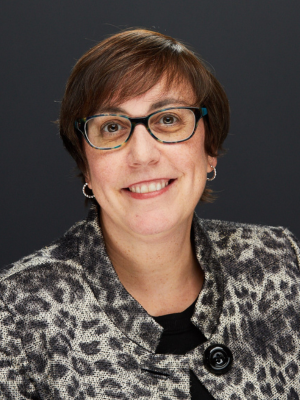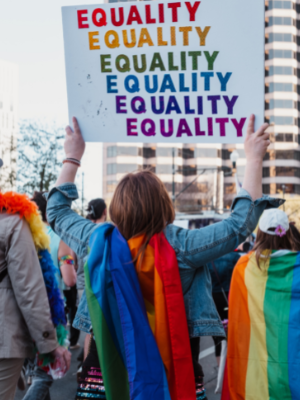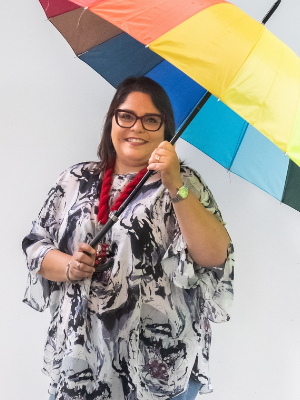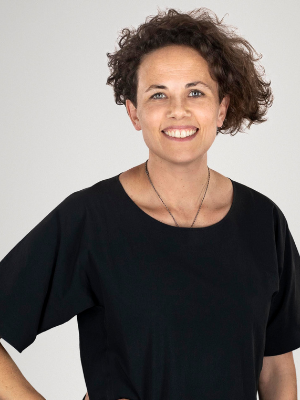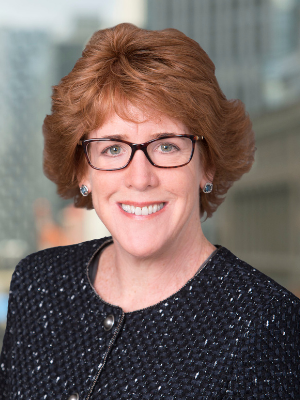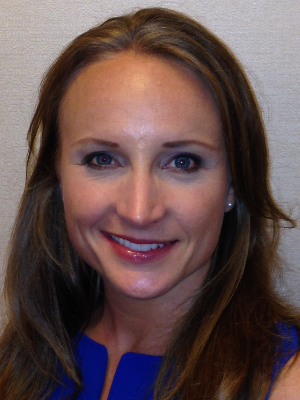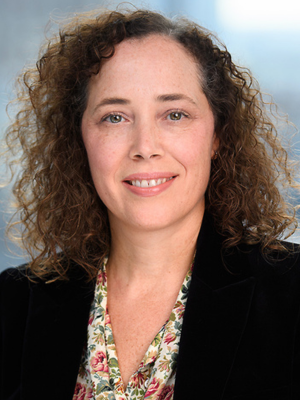 “As a leader, it’s less about you the more senior you become. It’s about who you lead and being available, honest and authentic with your teams,” says Lola Ninonuevo. “It is a pivot to realizing you’re here to serve people and you have to make time.”
“As a leader, it’s less about you the more senior you become. It’s about who you lead and being available, honest and authentic with your teams,” says Lola Ninonuevo. “It is a pivot to realizing you’re here to serve people and you have to make time.”
When she was twelve years old, Ninonuevo told her mother she wanted to travel internationally, see the world and become a business woman. Growing up speaking Spanish at home, she then studied Japanese while obtaining her economics degree, began her career in a Japanese bank in New York, and has spent the last 25 years working out of London in global positions, joining Wells Fargo in 2020 to help lead the international business strategy.
Finding a Bigger Reset in London
From early on, her Puerto Rican mom and Cuban Puerto Rican father impressed upon Ninonuevo the value of a good career. She was drawn to banking for the multicultural, international environment and the financial security. In 1991, she took that first trading assistant job with a small Japanese bank in World Trade Center in New York. As the only woman on the trading floor, she both served tea but was empowered early on to take on additional responsibilities such as cash management for the branch and representing the bank at industry round tables hosted by Paul Volcker, former chairman of the Federal Reserve Bank. Having gained experienced in the fixed income market, she then joined BlackRock, which at the time was a start-up and small boutique asset manager, and worked with the founding partners to set up the middle office and trading support functions.
In 1996, she was approached by HSBC to help build out their Global Markets business. She was attracted to their global footprint, and in 1999, she relocated to London with HSBC and went onto work for 23 years across a variety of global roles in the Corporate and Investment Bank. London offered her international travel, a strong learning curve and new career prospects. But what London also provided was a reset and new freedom of self, supported by now being a part of a multicultural global and diverse organization.
“I had not been ‘out’ in the workplace in New York, and that was hard. It impacted my decisions and ability to bring myself to work, for example talking about what I had done over the weekend and attending corporate events with my partner,” she recalls. “I felt more at home in London where I felt comfortable to be more open about my personal life, because I could be Lola, the American woman who moved. Not the Puerto Rican woman. Not the gay woman. It was just Lola.”
Two decades later, in 2020, Ninonuevo was approached for the COO role at Wells Fargo. While still based in London, returning to a U.S. work culture has felt like a homecoming. She notes that John Langley, CIB COO and Head of International, has been a fantastic leader, support and sponsor. Ninonuevo has found a welcoming, collaborative and optimistic culture at Wells Fargo and enjoys connecting with both international colleagues from different backgrounds as well as reconnecting with American colleagues across the US.
“I can be an American advocate while bringing my international perspective to the table to help drive the Wells Fargo global strategy,” she says. “It feels like coming home, and it’s fantastic to be back.”
Creating a Brand of Speaking the Truth
When it comes to rising up to the executive level, Ninonuevo notes self-awareness is critical – including knowing what you’re good at and what you’re not and building a team that complements your strengths and weaknesses. Resilience and being a powerful collaborator are also essential.
“In banking these days, with both the complexity and risk management challenges we’ve had since the crisis, connecting the dots and bringing people together to solve problems is a key part of what I bring to the table,” she reflects. “I really focus on building relationships. I’m honest and candid in my approach.”
Her willingness to be incisive, which found a home in British culture, helped Ninonuevo to breakthrough to the C-suite in 2012. When HSBC was in a crisis with compliance issues, she stood up and spoke truthfully about what was going well and what was not going well. That became a turning point in her career, catapulting her into a global role leading the firm wide compliance transformation across 60 countries.
“When I came in and talked to the board and the regulators, they knew they were going to get honest and balanced feedback. And that became my personal brand – a person with integrity that got the job done. In my opinion, since the crisis, the role of women in banking has become very important in C-suite jobs. Because I personally think we are more inclined to ask difficult questions, be honest, and not just go along for the sake of going along. And that tribal mentality of going along was a pitfall in the industry.”
Pivoting to a Collective Leader Mindset
“In my opinion, being a true leader is not just about managing up anymore or trying to get the next job,” says Ninonuevo. “I genuinely think I should be judged based on the teams I build and how I encourage and empower them.”
This involves a greater level of willingness to let go and let learn.
“When I was progressing through my career, a lot of it was about me and developing my technical skill set: I’ve got to manage up, I’ve got to manage sideways. I’ve got to manage down. All of those facets still exist,” she says. “But that’s the big leadership pivot people don’t realize: You don’t have all the answers. You’re there to listen. You’re there to serve and support others to be successful.”
Visibility has been the major factor that distinguishes the C-Suite from other levels of leadership, and again asks one to evolve.
“The visibility and impact you can have as a C-Suite leader are multiplied. It’s so important to be aware of how you behave, how you treat people, and how you react under stress.”
The Obligation of Being a Voice
“With all the learnings on how important it is to have diversity and diversity of thought around the table, and often being the only woman in the conversation, I feel it’s my obligation to ask those difficult questions and make sure we’re challenging ourselves to do the right things and to hold ourselves accountable,” says Ninonuevo. “So I’ve used the difference as an opportunity to have a voice, to be honest and to say it like it is.”
Ninonuevo has reflected with compassion, too. “When firms are in crisis, they are driven by fear. And when you’re afraid, you basically hire in your own image because you trust it and it’s what you know. Taking risk is hard when you’re in a crisis.”
When it comes to managing your career, Ninonuevo emphasizes to be your own advocate, communicate your ambitions to your stakeholders regularly, focus on your transferable skills and don’t be afraid to go after challenging roles.
“As Citi’s Jane Fraser has spoken to, your career is over decades. It’s not the be-all and end-all. There’s periods where you can really lean in and put 100% into it, and there’s periods where you can’t, and that’s okay as long as you stay connected.”
Why Relaxing Into Yourself Makes All the Difference
Ninonuevo admits that for years, being gay and feeling unable to talk about her life outside of the workplace inhibited her ability to relate and feel belonging with colleagues on a personal level, but that also touches upon everything else.
“In the workplace, people relate and connect by sharing things about themselves, whether it’s their family life, their children, or what they did over the weekend,” she says. “I found it really hard to share because I was self-conscious.”
If she could go back and give her junior self some words to lighten the road ahead, she would advise to be more of herself at work, sooner. But, at times, she worried about how others would react and whether it would count against her. She even got a coach to seek out help in confidence-building.
“After a few seconds of work, he stopped and told me, ‘You don’t have a confidence issue. You’re confident. You know what you’re doing. People enjoy working with you,’” says Ninonuevo. “Then, he said, ‘You just need to be yourself and selectively find opportunities to do that and connect.’”
For her, this meant becoming more willing to bring her full self to work, despite the challenges she felt. As a change agent, once she becomes aware of something, Ninonuevo starts to move forward in a more effective way.
“Before that, I’m sure I was projecting a lack of confidence. But I was just closed with that part of myself. But the more that I was myself, the more I relaxed, my body language relaxed and people relaxed around me,” she says. “I started being more approachable, people enjoyed working with me more, and I got results from that. I actually had more gravitas because I felt relaxed and confident and became a better communicator, and it all started coming together.”
Ninonuevo is a dual citizen, practices pilates and enjoys walks. She loves spending time with her six year old daughter, traveling and good food and wine. After a month in Spain, she’s been inspired to get her Spanish fluency to where it was those years ago, back when she first professed to her mother that she would become an international business woman…let alone, fill a big seat in the C-Suite.
By Aimee Hansen

